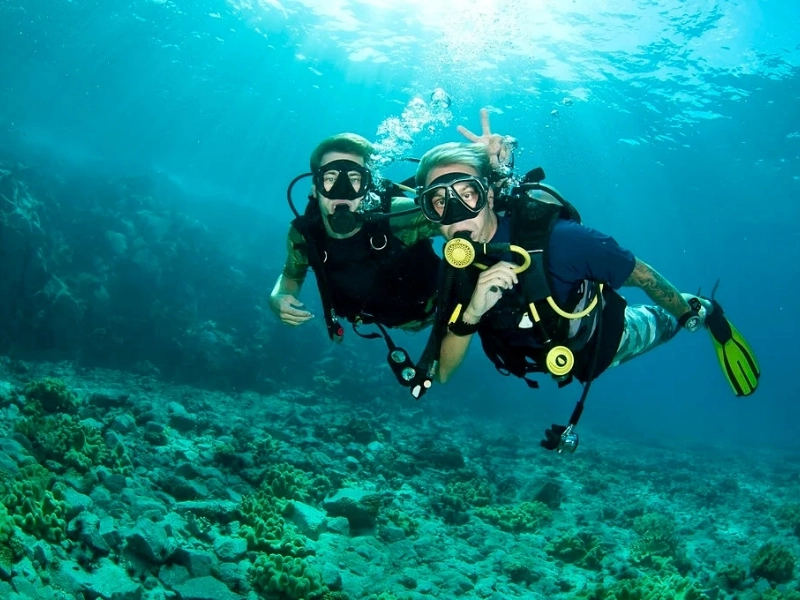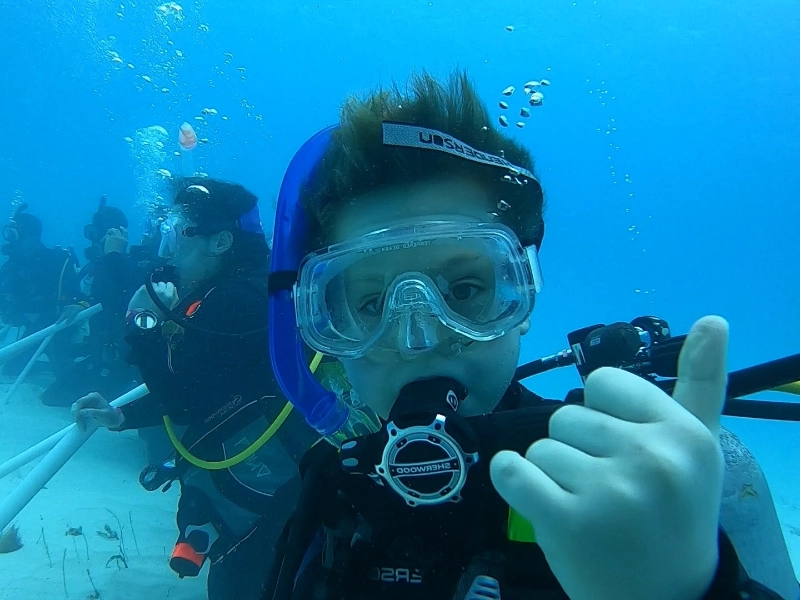Do you find it terrifying to view the bottom of an ocean pool or to swim in deep water? If so, aquaphobia might be your problem. You can conquer your fear if you understand it. This post will offer advice on how to get over this typical fear with patience, time, and good planning. Finding a safe place to practice, understanding the source of your fear, and learning how to unwind underwater are a few of these suggestions.

 Even in a secure setting like a pool, many people suffer from a severe fear of deep water. We call this disorder bathophobia.
People who suffer from bathophobia experience a severe dread of deep water, which can be brought on by a number of different things. An unreasonable fear that there are monsters hiding in the deep water or the worry that they will drown are the two possible causes of this phobia.
Self-help strategies and practice may assist individuals with minor cases of this phobia to overcome it on their own. Numerous techniques exist for relaxation, such as repeating positive mantras or picturing a calm environment. It could be essential to seek expert assistance for individuals suffering from a more severe version of the illness. Aquaphobia is a common specialty among therapists, who can offer a variety of interventions, including medication. Before diving, these can be taken to reduce the body's reactivity to the potential danger of deep water.
Even in a secure setting like a pool, many people suffer from a severe fear of deep water. We call this disorder bathophobia.
People who suffer from bathophobia experience a severe dread of deep water, which can be brought on by a number of different things. An unreasonable fear that there are monsters hiding in the deep water or the worry that they will drown are the two possible causes of this phobia.
Self-help strategies and practice may assist individuals with minor cases of this phobia to overcome it on their own. Numerous techniques exist for relaxation, such as repeating positive mantras or picturing a calm environment. It could be essential to seek expert assistance for individuals suffering from a more severe version of the illness. Aquaphobia is a common specialty among therapists, who can offer a variety of interventions, including medication. Before diving, these can be taken to reduce the body's reactivity to the potential danger of deep water.
 Before every diving lesson, try some relaxation techniques as one of the greatest ways to get over your fear. To relax, all you have to do is take a deep breath in through your nose and out through your mouth. It can also involve repeating encouraging mantras or picturing a calm environment.
As soon as you feel comfortable using these breathing techniques, make every effort to include them in your dives. This will support you in maintaining your composure in the deep water, even if your unreasonable anxieties resurface.
In the event that your fears related to scuba diving and snorkelling become excessive, it's critical that you get professional assistance right away. If your worry fits the description of a particular phobia, a psychiatrist or psychologist can conduct tests to establish it and then recommend the proper course of treatment. Therapy, medicine, or a mix of the two may be required for this. Additionally, a therapist can teach you coping skills like progressive muscle relaxation or visualisation to help you deal with your illogical anxieties.
Before every diving lesson, try some relaxation techniques as one of the greatest ways to get over your fear. To relax, all you have to do is take a deep breath in through your nose and out through your mouth. It can also involve repeating encouraging mantras or picturing a calm environment.
As soon as you feel comfortable using these breathing techniques, make every effort to include them in your dives. This will support you in maintaining your composure in the deep water, even if your unreasonable anxieties resurface.
In the event that your fears related to scuba diving and snorkelling become excessive, it's critical that you get professional assistance right away. If your worry fits the description of a particular phobia, a psychiatrist or psychologist can conduct tests to establish it and then recommend the proper course of treatment. Therapy, medicine, or a mix of the two may be required for this. Additionally, a therapist can teach you coping skills like progressive muscle relaxation or visualisation to help you deal with your illogical anxieties.
 For a novice diver, a fear of deep water can exacerbate stress and discomfort from diving. But with rigorous planning and activities that gradually acclimatise you to depths you might otherwise be scared of, you can learn to conquer this anxiety.
A fear of deep water can arise from a variety of sources, such as environmental conditions and heredity. For instance, a youngster may pick up on their parent's dread of deep water and develop a similar phobia.
It's crucial to get expert assistance as soon as possible if your fear of diving is strong. You can learn relaxation techniques from a therapist or counsellor to help you overcome your anxieties and work through the roots of your anxiety. They can also prescribe medicine to help you relax if needed. This is the most effective way for some people to get over their fear of deep water.
For a novice diver, a fear of deep water can exacerbate stress and discomfort from diving. But with rigorous planning and activities that gradually acclimatise you to depths you might otherwise be scared of, you can learn to conquer this anxiety.
A fear of deep water can arise from a variety of sources, such as environmental conditions and heredity. For instance, a youngster may pick up on their parent's dread of deep water and develop a similar phobia.
It's crucial to get expert assistance as soon as possible if your fear of diving is strong. You can learn relaxation techniques from a therapist or counsellor to help you overcome your anxieties and work through the roots of your anxiety. They can also prescribe medicine to help you relax if needed. This is the most effective way for some people to get over their fear of deep water.